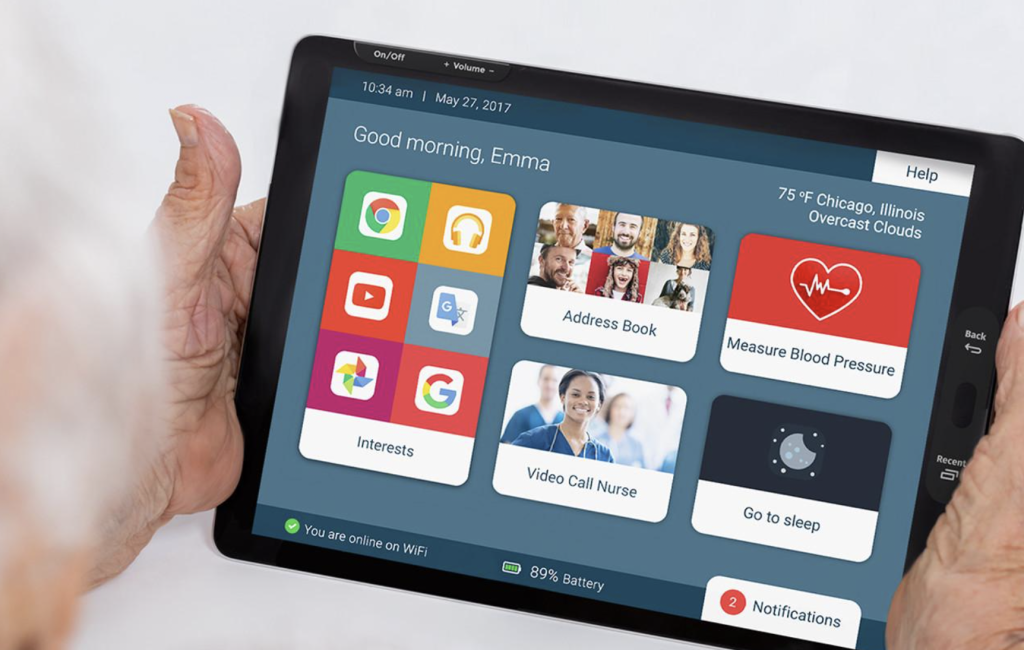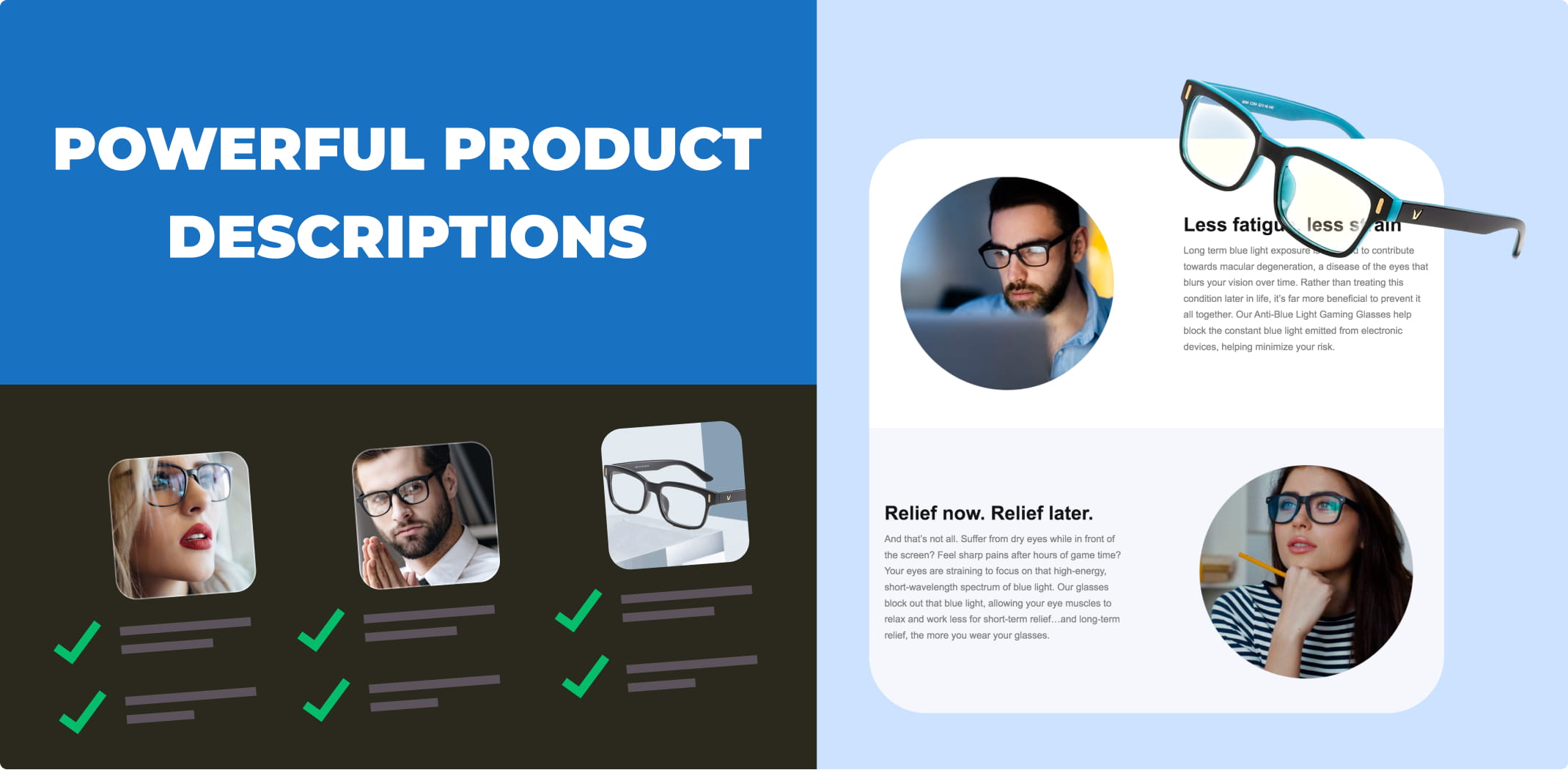- Introduction
- Know Your Target Audience
- Prioritize User Experience (UX) Design
- Streamline the Checkout Process
- Focus on Product Discovery and Presentation
- Additional Features to Enhance User Engagement
- Security and Performance Considerations
- Building a Scalable App Architecture
- Embrace Omnichannel Marketing
- Leverage Data and Analytics for Continuous Improvement
- App Store Optimization (ASO) for Discoverability
- Consider Implementing Augmented Reality (AR)
- Conclusion
- Frequently Asked Questions (FAQs)
Table of Contents
11 Ecommerce App Development Tips for 2024

Introduction
Creating a successful e-commerce platform is quite similar to cooking your favorite dish. First, you need to gather all the ingredients. In the case of e-commerce app development, this would be gathering information on the likes, dislikes, pains, and wants of your prospective users.
Once you have gathered those ingredients, it is time to collect the right utensils, in our case, selecting the right tools, technologies, and frameworks. Once you have done that, you can start cooking or developing.
But do you want to start the development process yourself or need help from e-commerce app development services?
The E-commerce app landscape is changing rapidly. Every day, new technologies are introduced to make the shopping experience easier for customers, which might not be easy for you to implement on your website.
So outside help as hiring an e-commerce app development company can be handy as these service providers are expert chefs in making the best e-commerce apps.
By keeping these key e-commerce app development tips in mind you can easily hire any e-commerce app development services providers that will help you to make your website stand out from the crowd.
Know Your Target Audience
Your e-commerce platform will be targeted towards your audience and without them getting impressed by your website, you will not be able to shine with our e-services.
For a successful e-commerce app development, it’s crucial to have a deep understanding of your target audience.
Understanding User Needs and Behavior
By recognizing their preferences, pain points, and expectations, you can tailor the app to effectively meet their needs. To do this, you need a proper understanding of what your potential users are looking for in your e-commerce app development.
Competitor Analysis in the E-commerce App Development Space
As they say, “Keep your friends close and enemies closer”, this proverb is true in the e-commerce sector too. Studying your competitors' strategies, strengths, and weaknesses in the e-commerce app development realm is equally important.
Probing their approaches can provide valuable insights to refine and differentiate your e-commerce platform.
Prioritize User Experience (UX) Design
Prioritizing the user experience (UX) design, which involves creating an intuitive and user-friendly interface (UI), optimizing for mobile-first navigation, and ensuring fast loading speeds making this process crucial in the e-commerce app development space.
Building an Intuitive and User-Friendly Interface (UI)

With a seamless and user-friendly interface users can navigate, find products, and make purchases. Prioritizing clear and simple design elements can greatly improve the user experience enhancing the usability of your application.
Discuss with your e-commerce app development services and implement the best UI technology for your website.
Optimizing for Mobile-First Navigation
As everything becomes mobile and reliance on mobile phones surges, optimizing the app for mobile-first navigation is critical in e-commerce mobile app development.
This involves streamlining the user interface and functionalities for smooth and efficient use on mobile devices.
Ensuring Fast Loading Speeds

Fast loading speeds are imperative for retaining user engagement. Slow-loading apps often result in user frustration and abandonment.
Therefore, conduct the e-commerce mobile app development in such a way that it loads swiftly and enhances overall user satisfaction and retention rates.
Streamline the Checkout Process

One critical aspect of e-commerce mobile app development is optimizing and making the checkout process easy. By streamlining this step, you can reduce cart abandonment and improve conversion rates.
Implementing Guest Checkout Options
Guest checkout is a great way to ensure your first-time buyers that they do not need to share personal information to make purchases on your site; increasing trust and reliability with your business.
By allowing guest checkout, you can provide a convenient and hassle-free experience, increasing the likelihood of completing a sale with your e-commerce mobile app development.
Offering Multiple Secure Payment Gateways

Integrating multiple payment gateways in your e-commerce app is a great way to showcase to your customers that you care about their data and security. Allowing them to choose the most convenient and trusted method of payment.
By offering various options such as credit cards, digital wallets, and online banking, you cater to a broader customer base and enhance their confidence in making purchases through your app.
Suggested Reading : How to enhance business with Custom Mobile App Development
Simplifying Order Tracking and Delivery Information
A great way to provide your customers with a positive shopping experience is to provide a feature of order tracking and proper delivery information in your e-commerce app development.
Keeping customers informed about their order status and delivery progress is vital for a positive shopping experience. Implementing an easy-to-use order tracking system allows users to monitor their purchases at every stage.
Providing reliable and real-time updates on delivery information, including estimated arrival dates and tracking numbers, contributes to customer satisfaction and reduces support inquiries.
Focus on Product Discovery and Presentation
Effective product discovery and presentation are essential features in e-commerce mobile app development for enticing users and driving sales.
By presenting products in an appealing and informative manner, you can captivate users' attention and facilitate their decision-making process.
High-Quality Product Images and Descriptions

With the attention span getting low, it is important not to bore your potential by giving them a long list of products without any image.
Compelling product images play a significant role in grabbing users' attention. High-resolution images coupled with accurate and engaging descriptions, help users make informed purchase decisions.
Remember to optimize the image sizes to ensure fast-loading speeds and avoid affecting the app's performance negatively.
Implementing Effective Search and Filtering Options
Search bar and robust filtering options are ways to make the product hunt easy as the more quickly they find the product the more likely they are to make a purchase.
By enabling users to refine their search based on specific criteria, such as price, color, size, or brand, you empower them to find precisely what they are looking for quickly.
Seamless integration of search and filter options in your e-commerce mobile app development reduces user frustration and increases the chances of converting browsing into successful purchases.
Leveraging User Reviews and Ratings
User reviews and ratings add social proof to your application, services, and products, influencing the purchase decisions of potential buyers.
Displaying honest and authentic feedback from previous customers in your e-commerce mobile app development builds trust and confidence in your products and services.
Encourage users to provide reviews and ratings after making a purchase, and prominently showcase them on your app's product pages.
Additional Features to Enhance User Engagement
In the realm of e-commerce app development, enhancing user engagement is pivotal for driving customer loyalty and increasing sales.
Implementing additional features that cater to user preferences and behaviors can significantly elevate the app's appeal and functionality.
Integrating Social Media Sharing Functionality
Enabling social media sharing functionality within the app allows users to effortlessly share products they love with their social circles. This not only extends the app's reach but also leverages user-generated content to promote products.
By seamlessly integrating social media sharing, you foster a community-driven approach to product discovery and encourage users to become brand advocates this creates transparency from your side.
Creating Personalized Product Recommendations

By leveraging user behavior and purchase history, the e-commerce app development can provide personalized product recommendations to buyers.
Implementing recommendation algorithms that suggest relevant products based on user preferences and browsing patterns enhances the likelihood of a purchase, thereby increasing user satisfaction and app engagement.
Implementing a User Loyalty Program
A well-designed loyalty program not only enhances user retention but also serves as a persuasive tool for attracting new customers. It not only incentivizes repeat purchases but fosters brand loyalty.
By offering rewards, discounts, or exclusive perks, you can encourage users to remain engaged with the app and make repeat transactions.
Security and Performance Considerations
In e-commerce app development, prioritizing security and performance is non-negotiable. Safeguarding user data and ensuring the app's seamless operation is paramount for building trust and delivering a positive user experience.
Prioritizing Data Security and User Privacy

With the increased number of data breaches even in some famous and secured sites, prioritizing data security and user privacy is vital.
Implementing robust encryption mechanisms in your e-commerce mobile app development and adhering to data protection regulations instills confidence in users regarding the safety of their personal information.
Discuss these transparent privacy policies and clear communication regarding data handling practices with your e-commerce app development company to further reinforce trust and credibility.
Regular App Performance Testing and Optimization
To maintain optimal performance, continuous testing and optimization are essential. Regularly conducting performance tests and addressing any identified issues or bottlenecks i your e-commerce mobile app development ensures that the app functions smoothly across various devices and under different network conditions.
This proactive approach to maintaining performance by your e-commerce app development company can contribute to user satisfaction and app reliability.
Building a Scalable App Architecture
As your user base grows, you can not accommodate them in the smaller system like any important match in a stadium that needs more space for the spectators.
Scalability is key for accommodating app growth and fluctuating user loads and your chosen e-commerce app development company can help you achieve that.
By designing a scalable app architecture, you can efficiently handle increasing user traffic and adapt to evolving business needs. This future-proof approach minimizes disruptions and supports the app's sustainable growth.
Embrace Omnichannel Marketing

Omnichannel marketing in e-commerce mobile app development facilitates a cohesive and integrated approach to engaging users across multiple touchpoints.
By seamlessly integrating the e-commerce app development with existing marketing channels and leveraging targeted communication methods, you can enhance user engagement and drive conversion rates.
Seamless Integration with Existing Marketing Channels
Ensuring seamless integration with existing marketing channels, such as email campaigns or social media advertising, opens a door for your customers to experience a unified brand experience.
Consistent messaging and brand representation across various channels foster a coherent and memorable brand image for your e-commerce app to foster a connection with your users.
Utilizing Push Notifications and In-App Messaging

In your e-commerce mobile app development, you can utilize push notifications and in-app messaging allowing you direct and personalized communication with users.
Sending relevant updates, promotions, or customized recommendations via these channels keeps users engaged and informed, ultimately driving app usage and customer retention.
Leverage Data and Analytics for Continuous Improvement
In the ever-evolving landscape of e-commerce app development, data and analytics are key to understanding user behavior and driving continuous improvement.
By harnessing the power of data, you can make informed decisions and optimize the user experience in your e-commerce mobile app development for better engagement and increased conversions.
Tracking Key Performance Indicators (KPIs)
By monitoring metrics or key performance indicators such as conversion rates, customer acquisition costs, and user engagement, you can gain valuable insights into the app's performance and make data-driven decisions to enhance user experience and drive business growth.
A/B Testing to Optimize User Experience

A/B testing in e-commerce mobile app development involves comparing two versions of an app feature or design element to determine which performs better.
By conducting A/B tests with the help of your e-commerce app development company, you can gather empirical evidence and make iterative improvements in your app based on user preferences and behaviors.
This method allows for incremental enhancements and ensures that changes positively impact the user experience.
App Store Optimization (ASO) for Discoverability

To maximize the app's discoverability and attract relevant users, implementing app store optimization (ASO) techniques is crucial. By optimizing the app's title, description, and selection of keywords, you can increase the chances of your app being found in app store search results.
ASO helps improve visibility and drives organic downloads, enhancing user engagement and potential conversions.
Optimizing App Title, Description, and Keywords
Crafting a compelling app title and description accurately representing its purpose and features is essential for capturing user attention.
Additionally, incorporating relevant and high-performing keywords in the app's metadata helps improve search rankings.
With proper planning with your e-commerce app development services provider, you can align the app's description and keywords with user intent, enhancing its discoverability, and attract users more likely to engage with the app.
Encouraging Positive User Reviews and Ratings
Positive user reviews and ratings are crucial for building trust and credibility. Encouraging satisfied users to leave reviews and ratings not only enhances the app's reputation but also helps improve its ranking within app stores.
By promptly addressing user feedback and consistently delivering exceptional experiences, you can foster positive reviews and ratings that boost app discoverability and instill confidence in prospective users.
Consider Implementing Augmented Reality (AR)
Augmented reality (AR) technology has the potential to revolutionize the way users interact with e-commerce apps. By integrating AR features into your e-commerce app development, you can enhance product visualization and provide a more immersive and engaging customer experience.
Enhancing Product Visualization and Customer Experience
AR allows users to view and interact with virtual representations of products in real-world settings. By implementing this feature in your e-commerce mobile app development, you will be enabling customers to virtually try on clothing or place furniture in their living spaces.
This feature in e-commerce app development cater to their desire for better visualization and reduced purchasing uncertainties. This interactive and personalized experience not only boosts user engagement but also increases the likelihood of conversions.
Conclusion
The landscape of e-commerce app development is changing at a rapid speed. So many features such as chatbot integration, personalized recommendations, AR & VR technology for trying out, and easy checkout are some of the features that just disrupted this domain in a good way.
But this does not leave this e-commerce mobile app facing challenges.
With more and more information getting published on the web, the e-commerce space is the hub of personal information making it the target of data breaches and cyber-attacks.
To succeed in this highly competitive market, e-commerce app development services must prioritize the user experience, implement proper data security measures, and scalability, provide a seamless user experience, and stay up-to-date with emerging trends.
Proper planning and implementation of e-commerce app development strategies can help you stand out from the competitors and achieve the heights of success in this competitive landscape of e-commerce mobile app development.
Suggested Reading: Web App Development vs Mobile App Development: Key Points
Frequently Asked Questions (FAQs)
1. What is the importance of user experience (UX) design in e-commerce app development?
User experience (UX) design is crucial in e-commerce app development as it ensures a seamless and user-friendly interface, optimized for mobile-first navigation, and fast loading speeds, all of which enhance user satisfaction and drive conversions.
2. How can I streamline the checkout process in my e-commerce app?
To streamline the checkout process, consider implementing guest checkout options to eliminate the need for users to create an account before making a purchase.
Additionally, offering multiple secure payment gateways and simplifying order tracking and delivery information can enhance the checkout experience.
3. How can effective product discovery and presentation drive sales in an e-commerce app?
High-quality product images and descriptions play a crucial role in grabbing users' attention. Implementing effective search and filtering options, as well as leveraging user reviews and ratings, can also enhance product discovery and influence purchase decisions.
4. What security and performance considerations should I prioritize in e-commerce app development?
Prioritizing data security and user privacy is essential in e-commerce app development. Regular app performance testing and optimization, as well as building a scalable app architecture, are also important for ensuring a seamless user experience.
5. How can omnichannel marketing benefit an e-commerce app?
Omnichannel marketing facilitates a cohesive and integrated approach to engaging users across multiple touchpoints, resulting in enhanced user engagement and increased conversion rates.
This can be achieved through seamless integration with existing marketing channels and utilizing push notifications and in-app messaging for personalized communication.
6. How can data and analytics be leveraged for continuous improvement in e-commerce app development?
Data and analytics provide valuable insights into user behavior. By tracking key performance indicators (KPIs) and conducting A/B testing, developers can make data-driven decisions to optimize the user experience and drive business growth.
Table of Contents
- Introduction
- Know Your Target Audience
- Prioritize User Experience (UX) Design
- Streamline the Checkout Process
- Focus on Product Discovery and Presentation
- Additional Features to Enhance User Engagement
- Security and Performance Considerations
- Building a Scalable App Architecture
- Embrace Omnichannel Marketing
- Leverage Data and Analytics for Continuous Improvement
- App Store Optimization (ASO) for Discoverability
- Consider Implementing Augmented Reality (AR)
- Conclusion
- Frequently Asked Questions (FAQs)





